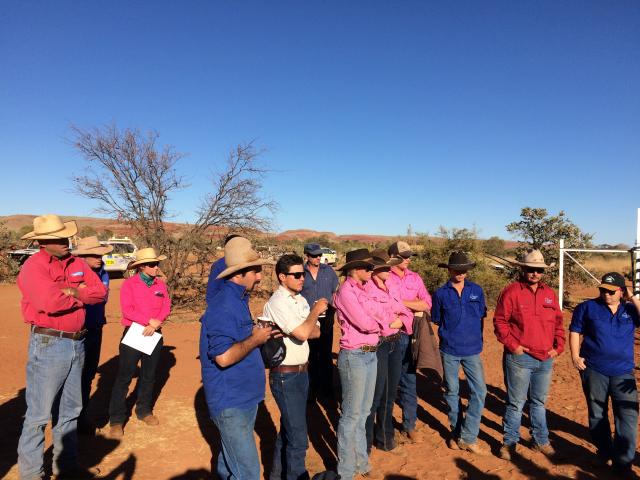Rangelands grassfed beef assurance opportunities investigated
The potential for a grassfed beef assurance program in WA to take advantage of the clean and safe reputation of rangelands cattle has been assessed by the Department of Agriculture and Food (DAFWA).
DAFWA’s Northern Beef Futures (NBF) Market Analyst Dale Miles updated producers on the recently completed work examining prospects for a certified program at the DeGrey LCDC information day at Yarrie Station in the Pilbara on 29 July.
A prefeasibility analysis was carried out to determine whether margin gains could be achieved by developing a value-added grassfed product in an integrated supply chain.
Global demand for grassfed beef is on the rise and industry projections suggest demand will continue in key export markets, such as the United States.
Investments in irrigated precincts in the rangelands region present prospects to supply a more consistent product to markets and deliver a potential margin gain for producers under an auditable grassfed assurance program.
The Pilbara and parts of the Kimberley are in a position to produce beef that fits the requirements of a grassfed certification program, with some changes to current production practices.
In the past, inconsistent supply during dry periods limited the development of a program for the region.
Feedback sought from producers, processors and markets on the development of a quality assurance program in WA indicated that a number of pastoralists own or had access to farmland for backgrounding cattle in the agricultural region.
The transition of these farms, usually used for the live export market or prior to entry into southern processor markets, to certification under a grassfed program, could form part of a further integrated supply chain as a value driver and margin gain for industry and producers.
Further, the current investment in irrigated fodder systems and increased adoption rates of north-south integration through backgrounding could provide an alternative option for a grassfed solution.
DAFWA is collaborating with the MLA and the WA beef industry to prioritise next steps to consider the implementation of a pilot project through an expression of interest process.
The desktop study completed by Global Agri Solutions was jointly funded by DAFWA’s NBF project, made possible by the State Government's Royalties for Regions program, and the Meat and Livestock Australia Donor Company.
For more information contact Roger Verbrugge, DAFWA NBF Market Analyst on +61 (0)8 9780 6166 or nbf@agric.wa.gov.au

